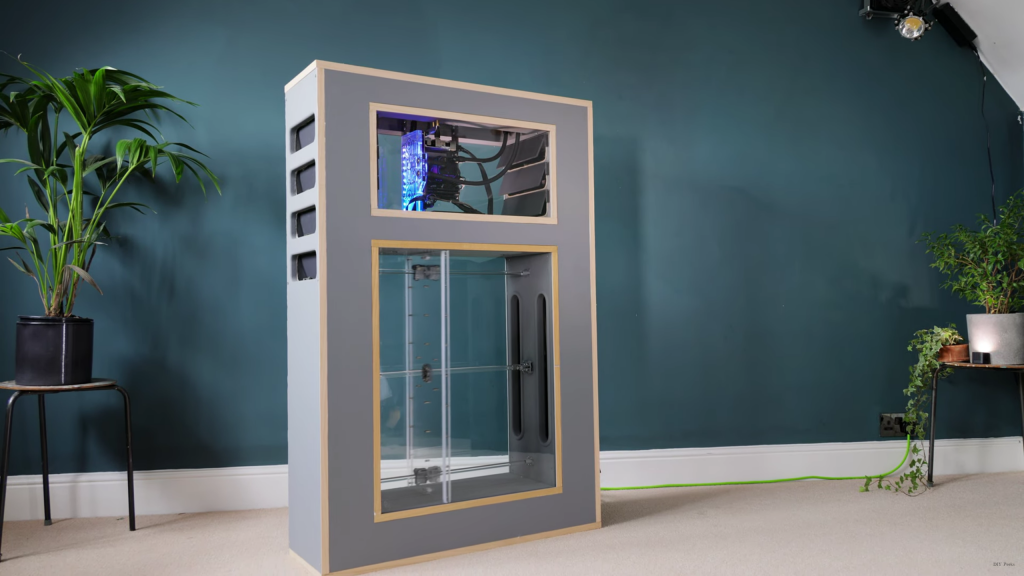Just when we thought we had hit a plateau when it comes to different ways to cool your PC, a chap named Matt over at DIY Perks on YouTube has an ingenious new solution.
PC cooling hasn’t come as far as the rest of the industry over the years. We’ve seen fans, water cooling and whatever this is, before. But we could be adding a third (we don’t count that copper foam thing) method to the list.
Last year March, DIY Perks uploaded a video of the successful proof-of-concept of his modern bellows system. His system uses magnet trickery and water to move a couple of sheets of acrylic back and forth. As the acrylic moves, it pushes the air out of its way. We highly recommend watching the full video if you want specific details of how everything works.
DIY Perks has since fitted a monstrous PC with this system, directing the airflow from his bellows to move cooler air over the PC components and through a radiator which then further cools the system. As the cool air is ‘blown’ in, it pushes hot air out. PC components are big fans of this transaction.
This PC blows our minds, but does it actually work?
To put it to the test, Matt installed a Ryzen 9 5950X and an RTX 3080 which together can use up to 425W of power. If you didn’t know, the more power you use the better the performance (generally) but also the hotter things become (again, generally).
He used Prime95 and Furmark to stress test the components which only saw the CPU and GPU get up to 60° and 62° Celsius, respectively. Those are pretty impressive numbers and could mean that, if one wished, there might be some extra overclocking headroom. But those are synthetic workloads so performance in real-world applications will vary. It would have been nice to see him run a game to better assess the systems performance.
Still, this is the first prototype and it already works fantastically, so it can only get better. And who knows, maybe this idea might take off and some of the major system builders start throwing money at it. We can only hope that one day our computers are breathing on their own. There’s no way anything bad can happen, right?




